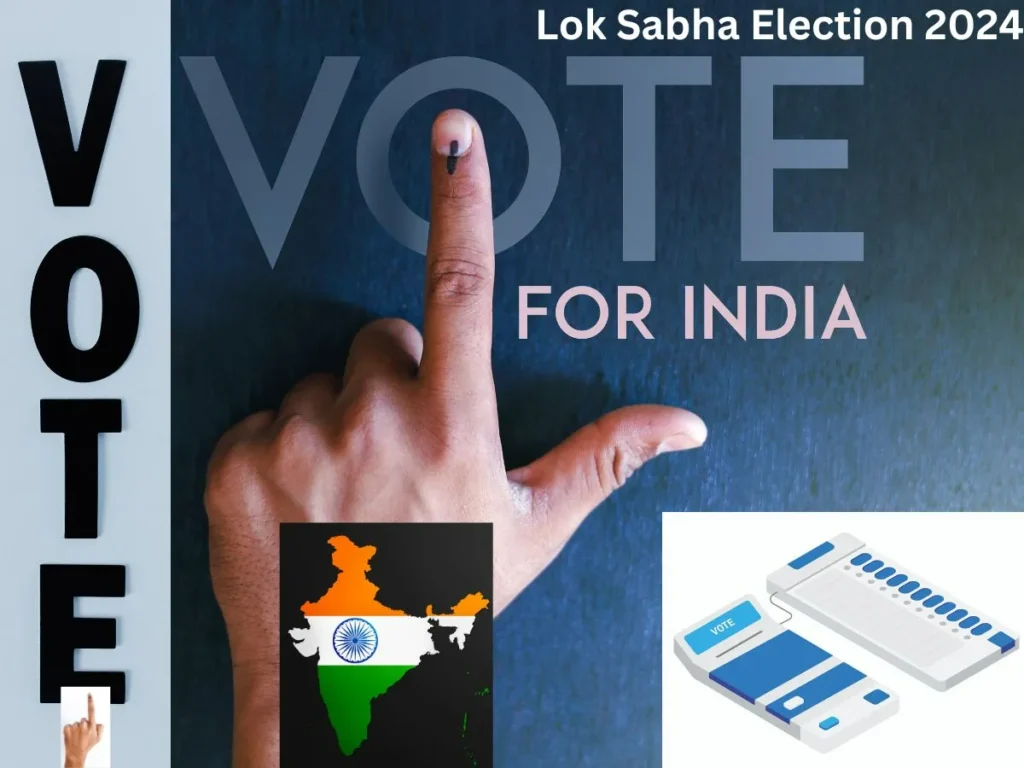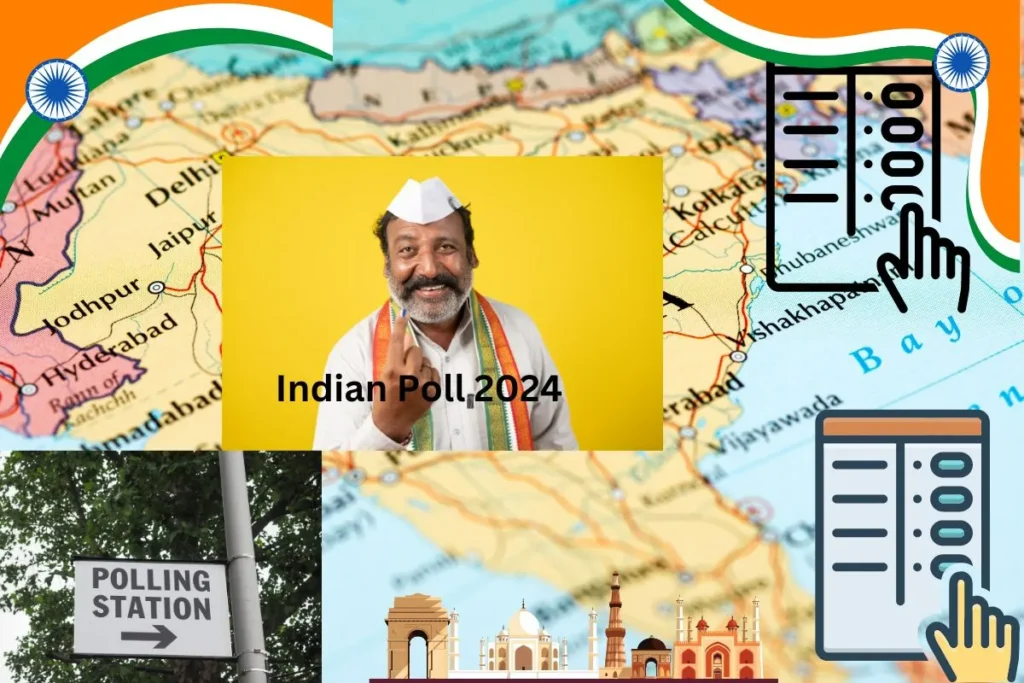Table of Contents
ToggleLok Sabha Election 2024: A Brief Understanding of Phase 2 Polling

As India gears up for the second phase of the Lok Sabha elections 2024, a comprehensive analysis reveals intriguing insights into the candidates vying for electoral victory. With 1,198 contenders across 87 constituencies in 12 States/UTs, the electoral landscape is rife with anticipation and scrutiny.
Criminal Allegations Against Candidates
A notable revelation is that nearly half of the candidates fielded by national parties face criminal charges, as per data sourced from Association for Democratic Reforms (ADR) and MyNeta.info. Out of the 1,192 candidates analyzed, around 20% have declared criminal cases against them, with 167 facing serious charges. This alarming statistic raises pertinent questions about the integrity and ethical standards of political aspirants.
Key Insights into Phase 2 Contestants
Among the myriad candidates, notable figures emerge, each with their own narrative and electoral significance. From a former UN official to a Bollywood luminary, the diversity of contenders reflects the multifaceted nature of Indian democracy. However, scrutiny is particularly focused on those with criminal allegations, highlighting the imperative for voters to make informed choices.
Geopolitical Significance of Phase 2
As the electoral caravan moves into the southern states of Kerala and Karnataka, political dynamics are poised for a pivotal shift. The battleground constituencies, including Wayanad and Thiruvananthapuram in Kerala, and Mandya in Karnataka, bear witness to high-stakes electoral battles that could shape the national narrative.
Voter Dynamics and Constituency Analysis
With 88 constituencies from 13 states and union territories participating in phase 2, the electorate wields significant influence in shaping the country’s future trajectory. Key constituencies like Wayanad, where prominent leaders like Rahul Gandhi are contesting, offer a microcosm of the larger political landscape, reflecting regional aspirations and national sentiments.
Challenges and Opportunities
While the electoral process unfolds, challenges such as voter turnout and the influence of criminal elements loom large. However, amidst these challenges lie opportunities for citizens to exercise their democratic rights judiciously and pave the way for a more accountable and transparent governance paradigm.
Voters from these 13 states and union territories’ 88 constituencies will go to the ballot box in Phase 2 of Lok Sabha Election 2024:
- Kerala: All 20 of the southern state’s seats
- Rajasthan: 13 of the western state’s 25 seats
- Karnataka: 14 of the southern state’s 28 seats
- Uttar Pradesh: Eight of the northern state’s 80 seats
- Madhya Pradesh: Six of the central state’s 29 seats
- Assam: Five of the eastern state’s 14 seats
- Chhattisgarh: Three of the central state’s 11 seats
- Bihar: Five of the eastern state’s 40 seats
- Maharashtra: Eight of the western state’s 48 seats
- West Bengal: Three of the eastern state’s 42 seats
- Tripura: One of the northeastern state’s two seats
- Jammu and Kashmir: One of the union territory’s five seats
- Manipur: Parts of one of the northeastern state’s two seats, which voted in the first phase, will also vote on April 26.
What are some of the significant “Lok Sabha Election 2024 Phase 2 Polling” in Electoral Battlegrounds?
Wayanad, Kerala:
Renowned opposition figure Rahul Gandhi is poised for a showdown against left-wing contender Annie Raja of the Communist Party of India in this constituency. It’s a crucial battle for Gandhi to retain the seat he secured in 2019. Despite both Gandhi’s Congress and the communists being part of the national opposition INDIA alliance, they stand as rivals in Kerala. Gandhi, hailing from a lineage of former prime ministers, faces the BJP’s state president K Surendran as well. Wayanad has long been a stronghold for the Congress, and Kerala notably remains a state where the BJP hasn’t yet made significant inroads.
Thiruvananthapuram, Kerala:
Veteran Congress member Shashi Tharoor is seeking re-election for a fourth consecutive term, facing off against BJP’s Rajeev Chandrasekhar, who serves as a junior information technology minister. Despite Kerala’s demographic composition, with a majority Hindu population, the BJP has struggled to gain substantial support here. The party’s efforts to secure victory in this constituency, where it has previously come in second, are challenged by Tharoor’s established presence and Congress’s historical stronghold.
Mandya, Karnataka:
The BJP’s endeavor to clinch the Mandya seat in southern Karnataka remains unfulfilled, despite their significant gains in the state in previous elections. The BJP, under Modi’s leadership, aims for a broad victory, but success in southern India is pivotal for their aspirations. The Congress, now back in power in Karnataka, is rallying against what they perceive as neglect of southern states by the central government. The contest sees Congress candidate Venkataramane Gowda, also known as Star Chandru, pitted against former Chief Minister HD Kumaraswamy of the Janata Dal Secular, a BJP ally.
Mathura, Uttar Pradesh:
BJP’s Hema Malini, a Bollywood actor, has secured victory in this constituency since 2014. Facing her is the Congress’s Mukesh Dhangar, the party’s state president. Mathura, known as a BJP stronghold, is embroiled in controversies over religious sites, including the Shahi Idgah mosque. Malini’s absenteeism from the constituency outside of election periods has drawn criticism.
Gautam Budh Nagar, Uttar Pradesh:
Former minister Mahesh Sharma of the BJP, victorious twice from this constituency, faces electoral challenges amid ongoing tensions. The village of Bisahda within this area was the site of the 2015 lynching of Mohammed Akhlaq, sparking nationwide outrage. Recent comments by Prime Minister Modi have intensified scrutiny, with critics accusing him of stoking anti-Muslim sentiments, further complicating the electoral landscape.
Conclusion
As India navigates through the complexities of its democratic exercise, phase 2 of the Lok Sabha elections stands as a testament to the vibrancy and resilience of its electoral fabric. With each vote cast, the electorate shapes the destiny of the nation, reaffirming the principles of democracy and participatory governance.
By delving into the intricacies of candidate profiles, constituency dynamics, and electoral trends, stakeholders can gain valuable insights into the evolving contours of Indian democracy. As the journey continues, the nation awaits the verdict of its electorate, poised on the cusp of a transformative mandate.
